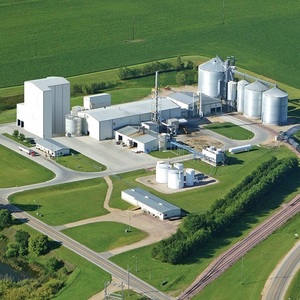Clariant to scale-up catalysts for Gevo's ETO technology

Gevo Inc.
May 19, 2016
BY Gevo Inc.
Gevo Inc. had announced that it has entered into an agreement with Clariant Corp., one of the world’s leading specialty chemical companies, to develop catalysts to enable Gevo’s ethanol-to-olefins (ETO) technology. As previously disclosed, Gevo’s ETO technology, which uses ethanol as a feedstock, produces tailored mixes of propylene, isobutylene and hydrogen, which are valuable as standalone molecules, or as feedstocks to produce other products such as diesel fuel and commodity plastics, that would be drop-in replacements for their fossil-based equivalents.
Underpinning the ETO technology was Gevo’s invention of proprietary mixed metal oxide catalysts that produce polymer grade propylene or high purity isobutylene, along with hydrogen in high yields in a single processing step from conventional fuel grade specification ethanol. Clariant is committed to the development and scale-up of the catalyst, which is expected to continue the advancement of the ETO technology, while Gevo focuses the majority of its internal resources on the ongoing optimization of its core isobutanol technology. Once the ETO technology has been successfully developed and scaled-up, Clariant will be in a position to produce quantities of the catalyst needed to meet commercial production requirements. As with its isobutanol technology, Gevo anticipates growing its ETO business through licensing.
Advertisement
Advertisement
Gevo has filed a series of patent applications related to this technology. The ETO technology has the potential to provide the estimated 25 billion gallon global ethanol industry a much broader set of end-product market and margin opportunities, beyond the use of ethanol as a gasoline blendstock. It has the potential to address a variety of markets in the chemicals and fuels fields, such as automobile parts, packaging, durable goods made of plastic, renewable diesel fuel and renewable hydrogen for the chemical, energy and fuel cell markets.
"We see the opportunity for Clariant catalysts to convert ethanol, produced from cellulosic or other carbohydrate sources, into more value-added products to create greater growth potential for the ethanol industry," said Stefan Brejc, head of specialty catalysts business segment at Clariant.
Advertisement
Advertisement
"We are pleased to be working with Clariant. They have tremendous capability and know-how to scale-up developmental, customized catalysts to enable commercialization of new, large-scale processes. We see the potential with this technology to address several major opportunities cutting across chemicals, plastics, fuels and hydrogen," said Patrick Gruber, CEO of Gevo.
Related Stories
The U.S. Energy Information Administration maintained its forecast for 2025 and 2026 biodiesel, renewable diesel and sustainable aviation fuel (SAF) production in its latest Short-Term Energy Outlook, released July 8.
XCF Global Inc. on July 10 shared its strategic plan to invest close to $1 billion in developing a network of SAF production facilities, expanding its U.S. footprint, and advancing its international growth strategy.
U.S. fuel ethanol capacity fell slightly in April, while biodiesel and renewable diesel capacity held steady, according to data released by the U.S. EIA on June 30. Feedstock consumption was down when compared to the previous month.
XCF Global Inc. on July 8 provided a production update on its flagship New Rise Reno facility, underscoring that the plant has successfully produced SAF, renewable diesel, and renewable naphtha during its initial ramp-up.
The USDA’s Risk Management Agency is implementing multiple changes to the Camelina pilot insurance program for the 2026 and succeeding crop years. The changes will expand coverage options and provide greater flexibility for producers.
Upcoming Events










